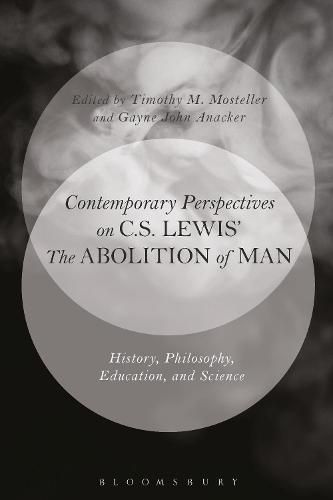Readings Newsletter
Become a Readings Member to make your shopping experience even easier.
Sign in or sign up for free!
You’re not far away from qualifying for FREE standard shipping within Australia
You’ve qualified for FREE standard shipping within Australia
The cart is loading…






Beginning with a clear account of the historical setting for The Abolition of Man and its place within C.S. Lewis’ corpus of writing, Contemporary Perspectives on C. S. Lewis’ The Abolition of Man: History, Philosophy, Education and Science assesses and appraises Lewis’ seminal lectures, providing a thorough analysis of the themes and subjects that are raised.
Chapters focus on the major areas of thought including: philosophy, natural law, education, literature, politics, theology, science, biotechnology and the connection between the Ransom Trilogy. Drawing on Lewis’ central ideas, they tackle questions such as, is The Abolition of Man hostile to scientific inquiry? Does Lewis provide an adequate rational defense of natural moral law? Do the lectures address the philosophical questions of the 21st century as Lewis sought to provide answers to philosophical questions of the 20th century?
Dealing with themes across multiple areas of human inquiry, the authors bring expertise from their respective fields to bear on the core issues raised in Lewis’ lectures. The result is an interdisciplinary approach that offers the first comprehensive scholarly treatment of The Abolition of Man, one of the most debated of Lewis’ works.
$9.00 standard shipping within Australia
FREE standard shipping within Australia for orders over $100.00
Express & International shipping calculated at checkout
Beginning with a clear account of the historical setting for The Abolition of Man and its place within C.S. Lewis’ corpus of writing, Contemporary Perspectives on C. S. Lewis’ The Abolition of Man: History, Philosophy, Education and Science assesses and appraises Lewis’ seminal lectures, providing a thorough analysis of the themes and subjects that are raised.
Chapters focus on the major areas of thought including: philosophy, natural law, education, literature, politics, theology, science, biotechnology and the connection between the Ransom Trilogy. Drawing on Lewis’ central ideas, they tackle questions such as, is The Abolition of Man hostile to scientific inquiry? Does Lewis provide an adequate rational defense of natural moral law? Do the lectures address the philosophical questions of the 21st century as Lewis sought to provide answers to philosophical questions of the 20th century?
Dealing with themes across multiple areas of human inquiry, the authors bring expertise from their respective fields to bear on the core issues raised in Lewis’ lectures. The result is an interdisciplinary approach that offers the first comprehensive scholarly treatment of The Abolition of Man, one of the most debated of Lewis’ works.